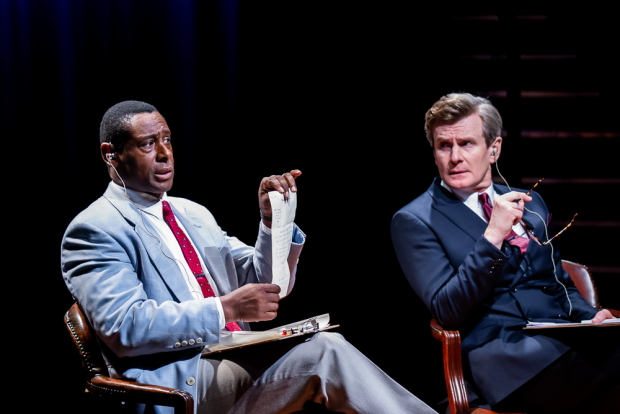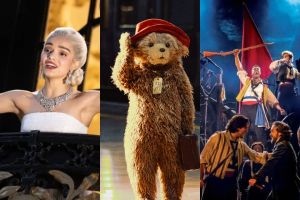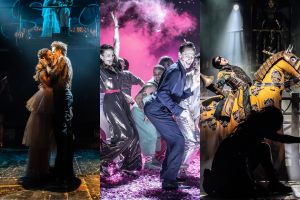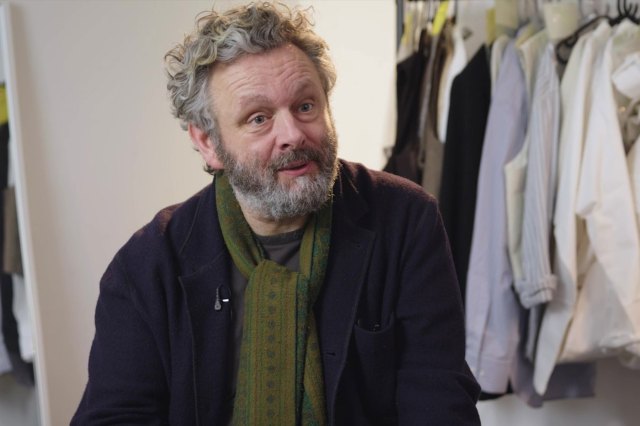Best of Enemies review – James Graham is back, doing what he does best
The playwright has crafted a deft reflection on modern political thought, premiering at the Young Vic

© Wasi Daniju
"I would say it was a real foreshadowing of an unhappy future," says a character at the start of James Graham's thrilling new play. "The one we live in today."
With that, we are off on a journey back into the past, to the United States in 1968 to be precise: the year Andy Warhol was shot, and Bobby Kennedy and Martin Luther King were assassinated. The year the Democrats held their convention in Chicago under siege from anti-war protestors and the city's own police. The year that Graham now sees as a turning point between before and after.
He has form with this type of historical archaeology, having previously looked at subjects including British politics in the 1970s, and Rupert Murdoch's takeover of the Sun through a similar clear-sighted lens.
His particular focus this time, however, is the series of television debates between the arch conservative thinker William F Buckley Jr and liberal man of letters Gore Vidal that were dreamt up by the ABC network to boost flagging ratings. On a late-night talk show on the lowest-ranked network, they do battle for the soul of America – and, Graham argues, changed the course of political discourse for ever.
The debates have been brilliantly covered in documentary form by Morgan Neville and Robert Gordon's film. What Graham does, however, is to take their substance and transform them into a play, an argument about what happens when you abandon old-style journalism and turn news into theatre and opinions into entertainment.
He is much helped by Jeremy Herrin's production for Headlong which is rough-hewn and visceral in all the best ways. Three giant screens above Bunny Christie's in-the-round set double as the glass in front of the TV production galleries where friends, family and anxious executives watch the debates unfold, and also as displays for real news footage from the times.
Furniture – chairs for the debaters, beds for the hotel rooms where they stayed – is pushed forward on trucks from the rear of the space. A small company of versatile actors play many parts, without ever losing their grip on who they are impersonating. When riots break out, they emerge chanting with placards, surrounded by the swirling smoke of tear gas.
Things move at a lightening pace, illuminated by humour as the combatants prepare to engage, each using their knowledge of the other to undermine the other's arguments, then deeply serious as these two self-styled public intellectuals slug it out.
The most radical decision is to cast David Harewood, who is Black, as Buckley, who held racist views in his portfolio of hard-line opinions. At first, it is marginally confusing but quickly it becomes clear that it is a masterstroke. That's partly due to Harewood's performance which catches all Buckley's twitches and mannerisms, his blinking eyes, his four-square stance, without ever reducing him to caricature. But it's also because Harewood makes you listen rather than just dismissing Buckley's views, which in other hands might have seemed intolerable.
In particular, the incident on which the entire play pivots, when Buckley loses his temper and calls Vidal "you queer", threatening to beat him to a pulp, still has the power to shock. The imaginative engagement Harewood's playing demands is in essence the plea of the play.
As Vidal, Charles Edwards has the easier gig, because Vidal was so witty. Graham nicks some of his best lines notably his jibe at a spacey Warhol – "the first man I ever met with an IQ lower than 60, and yet somehow a genius" – as well as gifting him some extra ones. But Edwards also digs deep, finding his dangerous vanity and willingness to sacrifice those around him without acknowledgement.
Around them a changing cast spin and put their pennyworth into the debate. Syrus Lowe is a wonderfully dignified and wise James Baldwin; John Hodgkinson has great fun as an irascible news anchor and a choleric Mayor Daley.
At one point early in the second half, gripped to my seat, I started to wonder whether anyone who wasn't as obsessed as I am with American history in the late 20th century would be as excited as I felt by this play. By the close, I was convinced they would because Graham has taken a piece of history and made it relevant to today, explained how it shaped the culture wars we are still living through, and how it made the politics that we experience.
What's more he has revealed the similarities as well as the differences of the two men at its heart – and by showing them in all their richness and complexity, made his own plea for tolerance, for real debate not shouting. It is a huge achievement.












